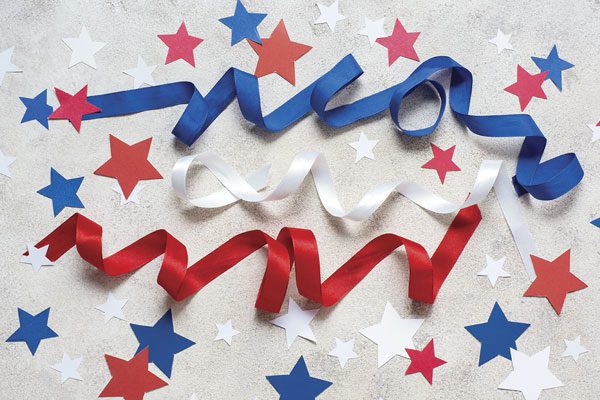
No thinker has jolted my world view like Harvard, Stanford, MIT scholar, Canadian Steven Pinker. He studies language, mind, and human nature and gives us a view of the trajectory of human history that, like an object too close to focus on, is too much part and parcel of who we are for us to stand apart from and appreciate. In The Better Angels of Our Nature, he demonstrated, with reams of data in graphs and charts, and certainly to my satisfaction, that violence has declined and declined again through history—violence such as assault and murder, in wars and in their number, against women, children, and animals. In Enlightenment Now, he similarly illustrates that 17th and 18th century Enlightenment principles—reason, science, humanism—are not a phenomenon of that time only but have become so deeply incorporated into our mores and attitudes that profound change and progress have been the result, no matter how oblivious we may be and how many deny that any change for the better has, or ever will, take place, except to go backward—as whatever dire moment we are in proves.
Pinker wants us to consider that life expectancy, once around 30, is now pushing 80, that in the 17th century about 15% of us were literate, now over 90% can read and write. At the beginning of the Enlightenment, 33% of all children died before age five, today less than 6% of children in the very poorest countries do. Measures of human happiness must include the relief from that greatest grief. We rail daily about democratic setbacks but two thirds of us have that blessing. In 1800, less than 1% did. In 1970, 23 wars were raging and 37% of humans lived in poverty; in 2000 there were 12 wars and 10% lived in poverty, despite population having grown from 3.7 to 6.1 billion. And consider that living below the poverty line today does not preclude having a refrigerator with food in it, schooling, and nighttime illumination for homework. General knowledge has increased so much that average IQ has risen thirty points since testing began.
One of the most interesting things about facts like these is the pushback they receive. I have wrecked dinner parties and had people storm out of book groups when I have tried to introduce them. People get upset and assert that they just don’t believe it. If you aren’t saying that things are going to hell you are suspected of naivete, insensitivity, or worse. Even if Pinker has correctly identified a historical pattern, critics tell you that things are so bad now, all that is irrelevant. Noam Chomsky scoffed that Neanderthals were better off than we today, necessarily without evidence, but then he is not one to be charitable to those who critique his theories as Pinker, also a linguist, has. The walk-out at the book club was by a Chomsky fan. Her take was that Pinker must simply be a bad person with ideas like these. He was “just in it for the money.” Those of us who have lived off academic salaries may recognize some hysteria operating there.
I think that this discomfort, this annoyance that is the very mechanism that has made progress possible. We do have Better Angels, and just as surely as that we are tribal, and that we murder and war and exploit, those Angels nag at us tirelessly. Bless them, they torture us, even as we no longer get drawn and quartered. They are conscience. They want us to treat others as we would be treated. We—enough of us, that is—don’t need fear of hell or the law to try to make ourselves and our surroundings better. Some say that God is Love. Brotherly love, romantic love, the love we feel for our little children, these may wobble into disillusionment, divorce, and teenage. I propose that God is Conscience.
The slopes of Pinker’s curves insist that we—again, enough of us—do right those wrongs that won’t let us rest. We observe and find truth. We discover we don’t have to sacrifice for good crops; that irrigation ditches work better than propitiation of gods. We increase social spending by governments. We insist that fewer of us die in unsafe cars. When that is done, we dig for more outrages. The better medicine gets the more we claim that health care is broken. The more illiteracy declines the more we shout that Johnny can’t read.
I mention the slopes of the curves that show that progress occurs, understanding that slope is a mathematical derivation from scattered data points and if you happen to be living in the world of an outlier bit of data, as we are today, or so I hope, it is natural that what you see around you is going to be more important than any bleeping angle of a line on a graph. In Ukraine it will not appear that wars are becoming less frequent. It will not seem to families and hostages in Gaza that famines are more and more a thing of the past. We live a little, shortsighted life. We are built to notice the near danger or injustice. And, good on us, we are built to mitigate, and to pass on how it can be done with language, and then to set it in type and print and distribute it, and then to learn about it on the dazzlingly powerful computers on our tables at lunch. For all our bad behavior, we also have those baked-in Better Angels so that inexorably, two steps forward and one back, over just short of geologic time, we rise. Until the sun swallows the planet, no cat will ever consider whether it is right to torture birds.
I read a book about the recent history of the CIA not long ago. What happened, I was brought to wonder, to my outrage over a president and vice-president demanding justification for a war of choice, for the WMD debacle, for black sites and torture? I apparently have no brain space to contextualize what’s happening today with other big steps back from the march of The Enlightenment—even when war and the death of hundreds of thousands was the result. Like you, today slaps me in the face and I am mostly too dazed to remember Vietnam, the assassinations…or to remember the civil rights movement, the elegant Black president, and “West Wing,” where for seven high-ratings seasons, characters intelligently debated every issue that can roil a body politic. And, come to think, where is my satisfaction at the demise of the slave trade, or the near eradication of Yersinia pestis, the cause of the Black Death? And for those bits of plague that remain, even affecting my neighbor in New Mexico, there are antibiotics! I should be lighting candles.
There have been game changers in the human past: the farming revolution and the industrial revolution. Each increased by magnitudes the number of calories of energy we have at our disposal to make life easier. The first made cities possible, which gave birth to government and law, numerical record keeping and written language. The second has let us extend healthy life by decades, slash poverty, place satellites in orbit to let our Uber drivers find us… but by doing this with fossil fuels, it has also made a third revolution a desperate necessity.
And here we are in it. We will find the path to making the sun and the earth’s processes give us all the power we need without harming our precious home, or we will be in uncharted territory. We have to admit it’s by no means certain that our Better Angels will be up to the challenge. We are trying to respond to the threat and, true to form, lashing ourselves with the shame of not trying hard or fast enough and paying little to no attention to the progress we make. That’s who we are.
It is entirely possible that the ten billion people predicted to crowd the planet and climate change may seriously derail the march of progress that Pinker chronicles. And then too they may get us to clean up our act, literally and figuratively. “One word: Plastics.”
As for this attempt to switch to renewable energy, cost-effectiveness has already dictated the outcome. Subsidies and projects may be slashed in the US but it won’t stop this third revolution. You may lob virtual sabots into the virtual machine, but you’ll be no more successful than the French handweavers were in stopping power-driven looms.
Don’t think I fail to put in the requisite number of hours at my computer following a time seemingly upside down. I do. Susan Sontag said we do this to reassure ourselves that we are not accomplices to what causes suffering, but it’s not enough, such reassurance. Our ancestors have taken action, as Pinker shows us, and enough of us are driven by our nature to do so too. I remind myself that I have proudly stood in line to vote, and have felt the weighty honor of serving on juries, and that my children and grandchildren have had vaccinations to help put off their deaths until I won’t suffer them, and I can’t believe that very many of us who have had those things will countenance going back to some dark new age. Nor, in the end, just short of geologic time, will our Better Angels countenance anyone anywhere not having what we would have for ourselves.
- Peaking Early: The Carousel - December 29, 2025
- PROFILE – Joyce Noriega Profile - November 29, 2025
- Better Angels - September 28, 2025


 Discover trusted local services and hidden gems with our easy-to-use online directory.
Discover trusted local services and hidden gems with our easy-to-use online directory.

